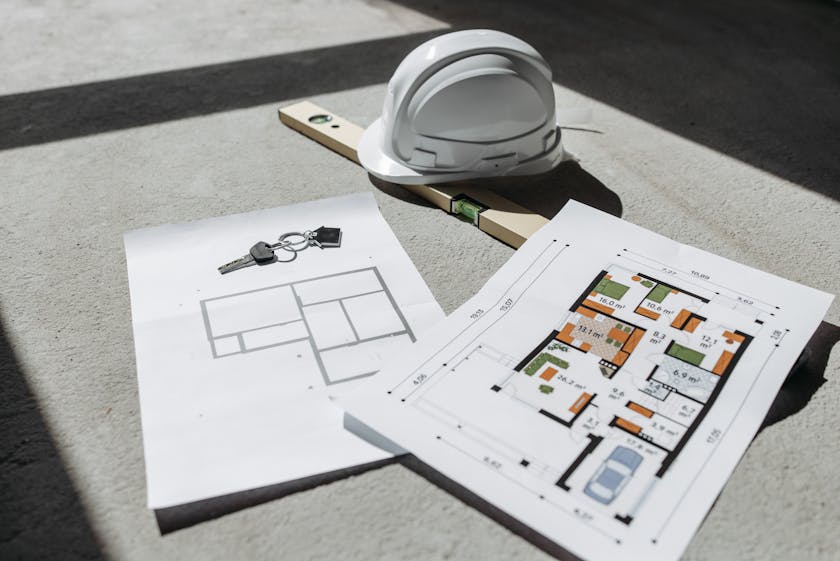Know The Truth About Ground Leases For Real Estate Tenants
February 7th, 2025
5 min read

Ground leases enable landowners to earn long-term rent. At the same time, tenants build and operate on leased land, creating stability for investors and flexibility for tenants. Success depends on clear lease terms, fair rent escalations, and a solid understanding of end-of-term conditions and obligations.

Imagine owning a piece of prime real estate, collecting rent for decades without lifting a finger for maintenance, and potentially gaining a free building. Does this sound too good to be true? Welcome to the world of ground leases, a game-changing strategy in real estate that's revolutionizing how property owners and investment firms maximize their investments.
This unique lease structure offers significant benefits to property owners while providing valuable opportunities for tenants. By separating land ownership from building ownership, ground leases create a symbiotic relationship that can span decades, offering long-term value to all parties involved.
It is important for investors to understand ground leases because it’s a strategy that investment firms can utilize to generate the maximum returns for you as an investor. Informed investors can choose investment firms that acquire and operate ground leases more effectively, as they know what traits or processes to look for.
In this article, we’ll explore ground leasing, how it works, and why it can be a great option for landlords looking to secure long-term value from their property.
Ground Leases: A Distinct Approach to Property Agreements
A ground lease is a specialized lease agreement where a tenant leases land from a property owner but retains ownership of any structures built on that land. Essentially, the tenant leases a plot of land from the property owner, but the tenant builds a structure on the land, which they now own.
This arrangement differs significantly from traditional leases, where tenants rent the land and the building. At its core, a ground lease is a clever twist on conventional property agreements.
For example, a tenant might lease a plot of land in a shopping center to build a restaurant or retail store. The tenant owns the building but pays rent to the owner for the use of the land. The ground lease typically spans decades, giving the tenant plenty of time to operate their business and benefit from their investment in the building.
The Strategic Benefits for Property Owners
Overall, ground leases are particularly valuable to firms for several reasons:
1. Enhanced Financial Security1. Enhanced Financial Security
One of the primary advantages for landowners in a ground lease arrangement is the high level of financial security it provides.
Since tenants have made substantial investments in constructing their buildings, they have a strong incentive to maintain timely rent payments to protect their investments. In the event of a default, the landowner has the right to take ownership of the building, effectively gaining a valuable asset without the associated construction costs.
Essentially, the tenant has a larger stake in ground leases. If the tenant stops paying rent, the landlord retains the land and takes over the building for free. It isn’t as if the tenants can take the building with them when they leave, right?
This makes ground leases a low-risk investment for landlords, as they strongly incentivize the tenant to continue paying.
2. Sustained, Long-Term Income
Ground leases are the marathon runners of the real estate world, often lasting 50 to 99 years. That's not just a steady income stream; it's a veritable river of revenue flowing your way for generations.
The best part? The landowner collects this money without the heavy responsibility of building management or maintenance.
Landowners enjoy reduced obligations through:
- Tenant assumption of building repairs
- No responsibility for structural repairs
- Elimination of property management duties
- Reduced insurance costs
- Minimal day-to-day involvement
With the tenant assuming responsibility for most property-related expenses, the income generated is largely passive. This arrangement is ideal for companies that must be equipped to handle the day-to-day hassles of managing a physical structure.
3. Land Value Appreciation
While the tenant's building may age, the land beneath it only gets more valuable with time. As property values soar, so does the potential for higher rents during lease renewals. As the investor, you can watch your investment grow while someone else besides the firm you partnered with does all the heavy lifting.
Ground leases have an additional benefit for the landowner (or the investment company), as some varieties of this lease type have a clause allowing the owner to regain full control of both the land and the building at the end of the lease’s duration.
4. Minimal Maintenance Responsibility
The operation of ground leases is almost entirely hands-off from the investment firm's side. The landowners do not have to act as concerned parents, constantly hovering to ensure that their children (the tenants) don’t break any furniture they will have to replace or injure themselves in some way.
Instead, the tenant takes on all the joys (and costs) of building maintenance, leaving the firm free to focus on more important things—like further strategizing how to maximize investment returns.
The Appeal to Tenants
But wait, there's more!
Ground leases aren't just appealing to landowners and investment firms; they can open doors for tenants, too.
Imagine being able to set up a shop in a prime location without the astronomical costs of buying the land outright. It's like having your business dreams served to you on a silver platter, with the land costs spread over manageable monthly payments.
With ground leases, tenants can:
- Allocate their capital more efficiently in their core business operations
- Spread the cost of land use over an extended period
This makes it an ideal arrangement for some business owners.
Ground Leases in Retail
Ground leases benefit different kinds of retailers, from large franchises like Costco and Target to small mom-and-pop shops specializing in a specific product or service. In both cases, the businesses save significant amounts of money by not needing to purchase the land to build on it.
For large retailers, the ability to build in a prime location without paying large upfront costs makes ground leases especially appealing to companies looking to develop operations in a specific geographic area.
Ground leases can be the best option for small, local business owners because they can oversee the entire construction process. This way, they can ensure that the building is uniquely suited to their needs instead of having to convert preexisting spaces into something that partially fits them.
Setting Up for Successful Leases
Like with all agreements, there are components and issues that both parties should consider carefully before moving forward with a deal. The contract should be clear and not vague to satisfy both the tenant and the landowner.
For creating and maintaining a successful ground lease, parties should ensure that there are:
- Clear definition of responsibilities
- Well-structured lease terms
- Fair market value assessments
- Regular rent adjustment mechanisms
- Building maintenance standards
- End-of-lease conditions
- Insurance requirements
- Development restrictions and requirements
These elements should be discussed and agreed upon before the tenant signs the lease. If there is trouble seeing eye-to-eye with any of these, this could be a good indication that the tenant might not be the right fit for this particular ground lease.
A Mutually Beneficial Strategy
In the high-stakes world of real estate, ground leases emerge as a powerful strategy that benefits both landlords and tenants. For property owners and investment companies, they're a way to secure long-term income with minimal risk and effort. For tenants, they're an opportunity to build their dreams without breaking the bank on land costs.
As the real estate landscape continues to evolve, ground leases stand out as a beacon of innovation. They offer a unique blend of security, profitability, and flexibility. This innovative lease type benefits many parties involved, including landowners and retail firms, business owners, and investors like you.
So, the next time you hear the term "ground lease," remember – it's not just a real estate agreement. It's a gateway to unlocking unprecedented value in property ownership and tenant opportunities. In real estate chess, the ground lease might just be the move that leads to checkmate.
Topics:


























